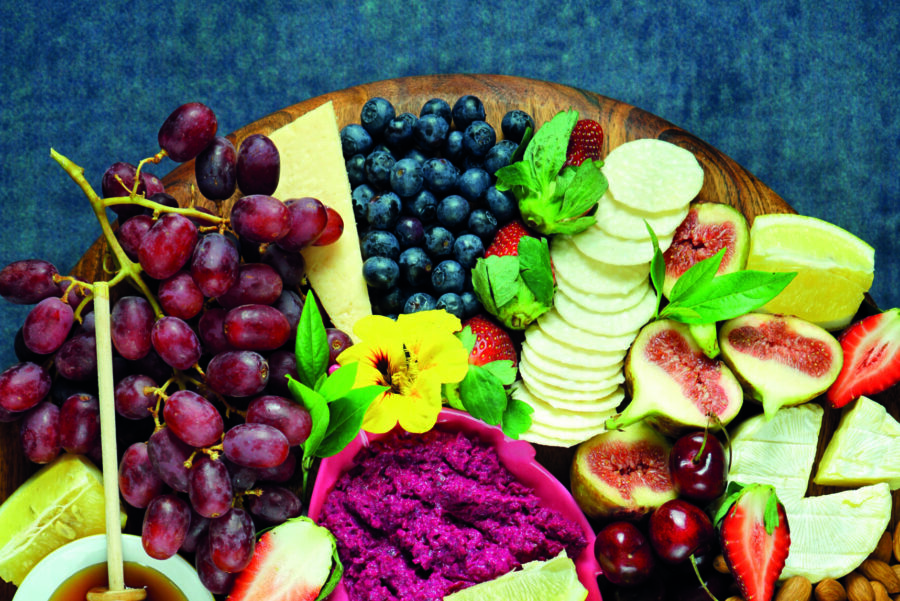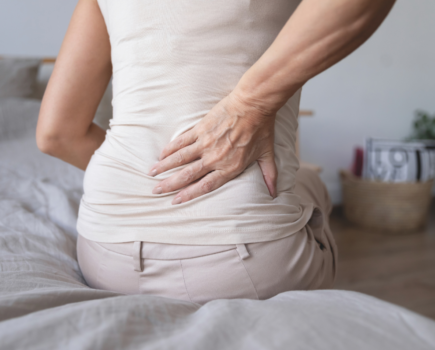Can you enjoy yourself while keeping your wellbeing on track for a healthy Christmas?
It’s all too easy to approach the runup to Christmas like an all-inclusive holiday, eating and drinking merrily, especially as we’ve had to reign in our party seasons over the last two years. The festive season can be wall-to -wall indulgence with barely any exercise. But with a bit of planning, says Jo Dunbar, you can have your Christmas cake and eat it…
Grazing not gorging
While it can be tempting to reach for a mince pie with every cuppa, or to say yes to every glass of fizz you are offered, experts tells us that a December spent overindulging will take its toll. A healthy Christmas is much better for us. Dr Sarah Brewer, medical director of Healthspan, warns, “A stodgy, carbohydrate laden diet plus long hours of partying with less sleep than usual will leave you feeling sluggish, tired and with lower immune defences so you are more susceptible to infections. You may gain weight and your blood pressure, cholesterol balance and glucose control may worsen. Lack of good nutrition will also contribute to fatigue.”
A month of eating pastry and drinking wine isn’t fantastic for your waistline, not to mention your cardio health, cholesterol score or complexion. The New England Journal of Medicine published a study showing that the average holiday weight gain was just under a stone and can take up to six months to lose.
Dr Brewer advises, “Plan to graze rather than gorge over Christmas. Eat little and often throughout the day, chew food well and eat slowly to avoid indigestion. Go easy on fatty, rich foods, as these take the longest to digest and so aggravate indigestion and heartburn.”
Scientists at the University of Copenhagen found that the numbers of people with high cholesterol were up by 20% in January and Dr Brewer reminds us to be heart-health aware at this time of year. “Blood pressure and cholesterol tend to creep up with age and this can be hastened by a poor diet and lifestyle, especially if you tend to gain weight. If you have an overindulgent day, aim to go easy for the next few days with no alcohol and a healthy, fruit and veg-packed diet. Moderation is the key — don’t overdo it, or your physical and mental health may suffer.”
Sample sobriety
Party season might signal the popping of corks but too much booze will impact on your sleep — something you need more of if you’re planning on finishing the Christmas shopping, cleaning the house and attending another half dozen parties. Alcohol-free beer, wine and spirits alternatives are easily sourced as a drinks option which will leave you clear-headed.
Dr Brewer offers a few tips to ensure your Christmas doesn’t get too merry. “It’s easy to drink more than usual this time of year and it helps to alternate alcoholic drinks with a non-alcoholic beverage. Instead of drinking wine on its own, try adding soda water to make a spritzer. Your liver has to work hard to detoxify alcohol so if you do drink more than you intended, follow with an alcohol-free day to help your metabolism recover.”
Keep on moving
It’s no secret that our commitment to exercise tails off in December and while the experts say there’s nothing wrong with a rest, ditching any kind of activity for the whole of Advent will have repercussions. David Lloyd Clubs personal trainer Andy Howse explains, “What you lose from a week away from exercising should not take too long to get back.
However, after a month of no exercise, you will feel noticeably less fit. Those stairs will be harder to climb; the morning dog walk will be a chore; and you will feel less energised.”
There are other effects, too: sleep, skin and mood can suffer if you become inactive. Andy adds, “For many, neglecting physical fitness also leads to a dip in mental wellbeing and the length and quality of your sleep may also deteriorate.”
Dr Antonis Kousloulis, director of the Mental Health Foundation for England and Wales, also reminds us that staying active isn’t just for our physical health. Worth remembering as our social calendars fill up at what can be a stressful time of year. “Research has consistently shown the wide-ranging benefits of exercise to our mental health. Exercise can release hormones that make us feel good. Our bodies and our minds are connected, so looking after ourselves physically also helps us prevent problems with our mental health.”
Plot your festive exercise
If you usually go to a Zumba class or the gym, try to keep to that routine throughout December. Not exercising all month will reduce your fitness noticeably and make a return to exercise doubly hard come January, plus you’re missing out on feelgood endorphins.
A survey by walking organisation Ramblers found that 32% of those asked felt guilty about their inactivity over the Christmas period. PT Andy suggests, “Plot out a regular exercise routine, write it down and pin it up somewhere prominent or pop the times in your phone’s calendar. Make this the framework in which your partying fits, not the other way around.”
If you don’t manage as much as you normally would, that’s OK — but even a 15-minute walk has so many benefits. Better yet, as Andy recommends, “Try to do your regular exercise with a partner. It is harder to skip when someone else is involved. It might be a walk, run or bike ride or maybe some gym classes together. Personal trainers are also great for providing motivation and structure to your exercise — they hold you to account.”
Vitamin D wards off December bugs
On top of the social whirl, December is also peak time to pick up a winter cold. Now is not the time to skip breakfast, or fruit and veg. Keep hand sanitiser nearby and it’s wise to give yourself a few nights off between parties. Dr Brewer also recommends ensuring you are taking a Vitamin D supplement.
“Susceptibility to sore throats and colds increases during winter and this is partly linked to having lower levels of vitamin D. Studies show that vitamin D deficiency increases the likelihood of developing common cold symptoms by over a third.” So, stock your medicine cupboard to give yourself the best chance of a happy — and healthy — Christmas.








